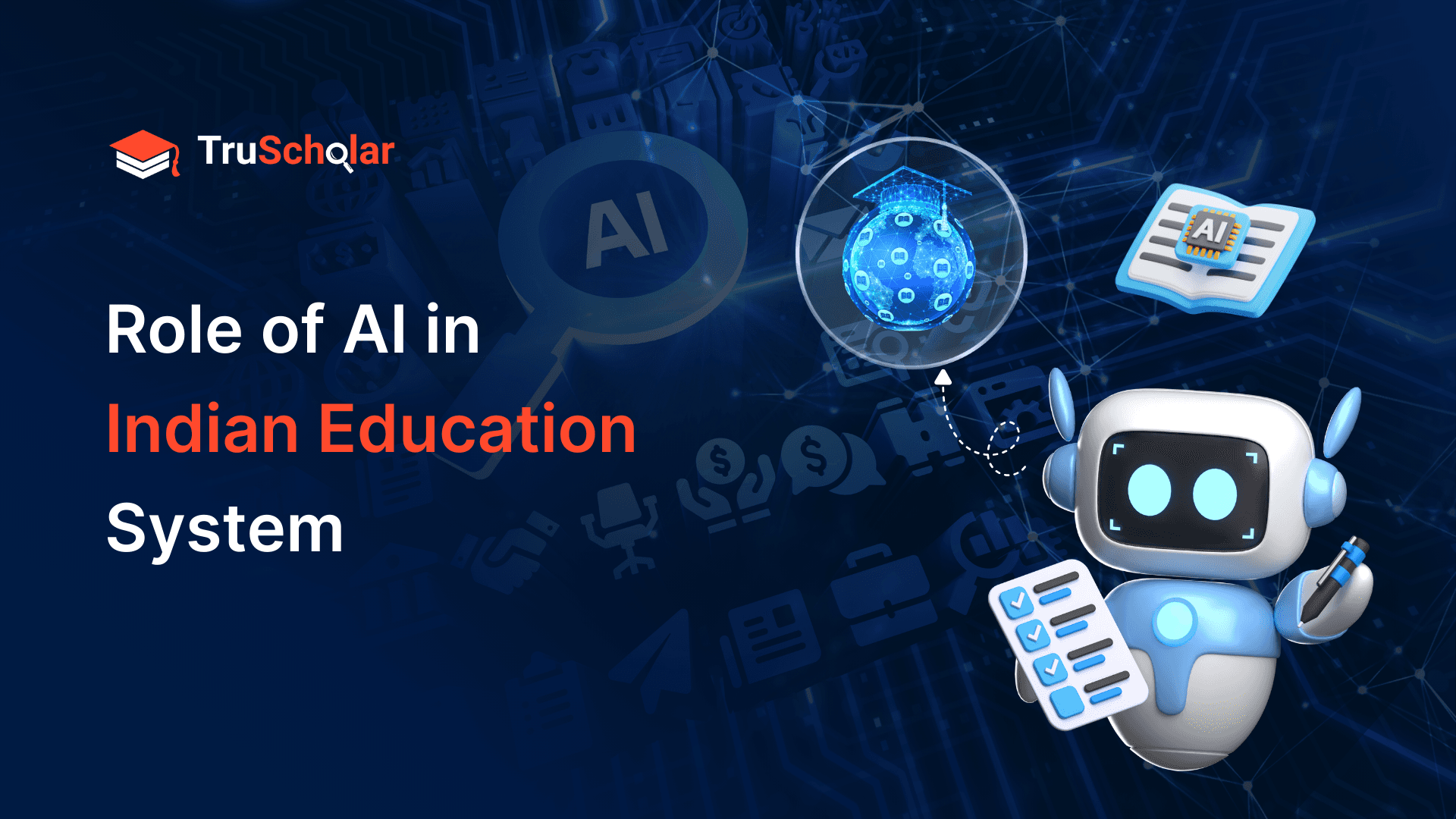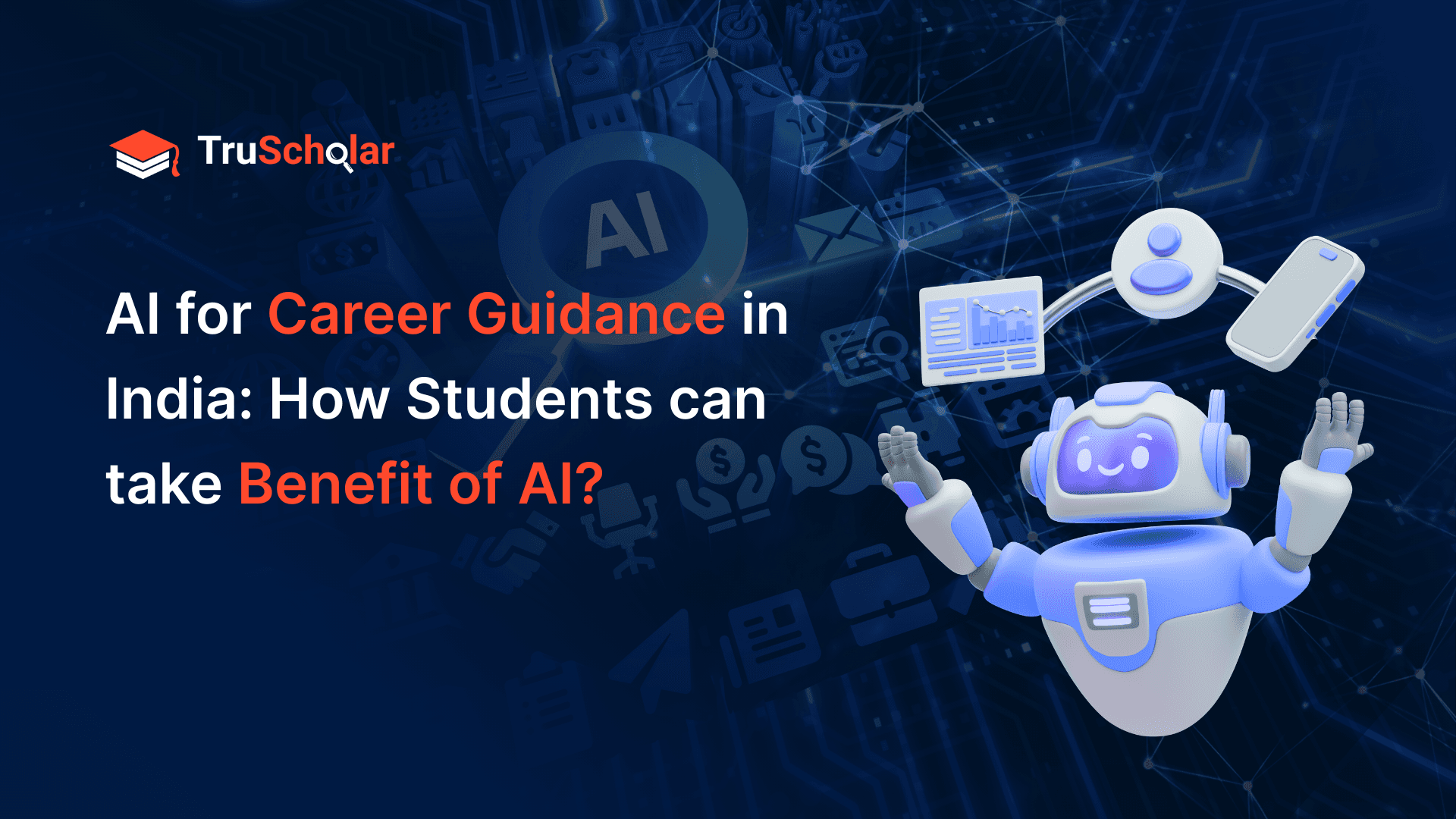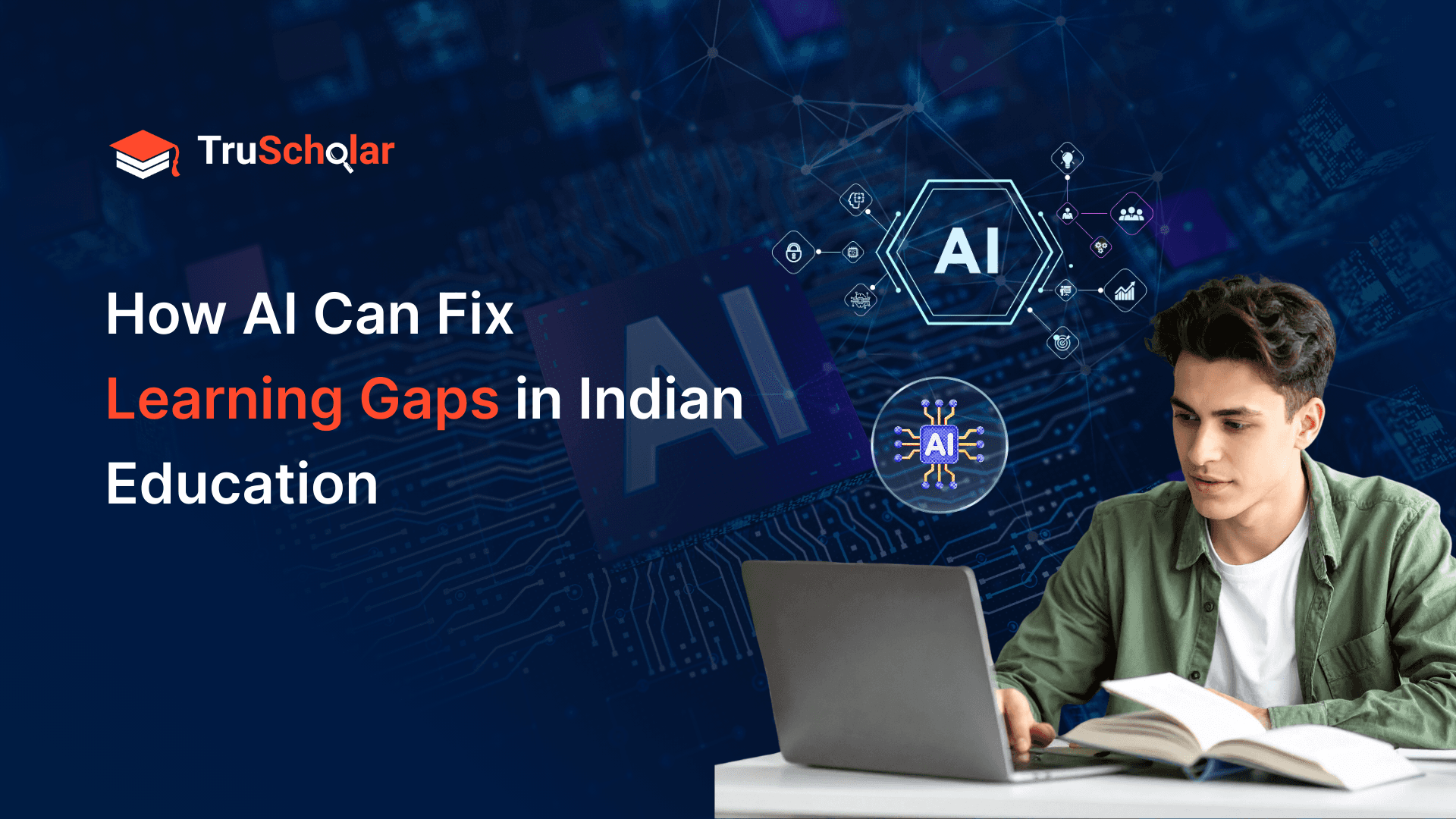AI
AI
AI
How AI Helps Students Explore Emerging Career Fields | AI for Career Guidance
How AI Helps Students Explore Emerging Career Fields | AI for Career Guidance
How AI Helps Students Explore Emerging Career Fields | AI for Career Guidance
3 Nov 2025
3 Nov 2025
3 Nov 2025


Introduction
Artificial intelligence is transforming how students plan their futures. With AI for career guidance, learners now have access to data-driven insights that reveal new industries, skill demands, and career paths they may never have considered.
From analyzing job market trends to recommending personalized learning paths, AI empowers students to make smarter, more informed career decisions. It connects education with employability, ensuring students are ready for both current and emerging opportunities.
Why AI for Career Guidance Is Essential Today
The job market is evolving faster than ever. Roles in data science, renewable energy, cybersecurity, and AI engineering are expanding, while traditional roles are being redefined by automation. That’s why AI for career guidance is no longer optional—it’s a necessity.
AI systems analyze massive datasets from recruitment platforms, academic results, and global job reports to identify which careers are on the rise. Students receive real-time updates on in-demand skills, emerging industries, and training options that align with their ambitions.
How AI Helps Students Explore New Career Opportunities
Artificial intelligence acts as a digital mentor—analyzing personal preferences, learning history, and market data to uncover the most suitable paths. Here’s how AI for career guidance helps students navigate emerging careers:
1. Personalized Career Assessments
AI-powered career guidance platforms evaluate students’ strengths, interests, and performance to suggest relevant fields. This personalized insight helps students explore careers beyond their initial expectations.
2. Real-Time Labor Market Analysis
AI tools scan global employment databases to predict which skills and roles are gaining momentum. This ensures students stay ahead by focusing on future-ready industries like AI, robotics, fintech, and green technology.
3. Smart Skill Matching
Using AI for career guidance, platforms match a student’s skill profile with high-demand jobs. For instance, if a student excels in coding and analytics, AI might suggest emerging roles like data engineer or AI model auditor.
4. Course and Certification Recommendations
AI tools such as Coursera, LinkedIn Learning, and IBM SkillsBuild use algorithms to suggest courses aligned with emerging job requirements. This helps students strengthen their profiles strategically.
5. Predictive Career Pathway Forecasting
AI predicts how certain skills evolve into future job opportunities. This data-driven approach allows students to plan their education and internships with precision.
6. Enhanced Decision-Making Through Insights
With AI for career guidance, students receive comparative analysis of different career paths—covering potential salaries, growth rates, and required skills—helping them make well-informed choices.
Here are some of the best AI-powered platforms helping students identify and prepare for emerging careers:
1. LinkedIn Career Explorer
LinkedIn’s AI analyzes millions of job postings to highlight trending roles and transferable skills. It helps students understand what industries are growing and how to transition effectively.
2. Coursera Career Academy
This platform uses AI to recommend courses based on a student’s learning patterns and global skill demand. It integrates career certificates and internship options within one system.
3. VMock SMART Career Platform
VMock uses AI-driven analytics to assess resumes, communication skills, and professional readiness—guiding students toward better alignment with employer expectations.
4. Eightfold.ai
Using deep learning, Eightfold.ai maps career paths, predicts emerging job trends, and recommends upskilling opportunities that increase employability.
5. IBM SkillsBuild
This AI-based platform provides free career development programs, personalized pathways, and certification opportunities that align with industry demand.
6. Emsi Burning Glass
Emsi’s AI labor analytics platform predicts emerging fields by analyzing millions of job market data points, helping universities guide students strategically.
Benefits of Using AI for Career Guidance
1. Personalized Career Exploration
AI tailors career recommendations based on individual strengths, ensuring each student receives guidance that fits their academic background and aspirations.
2. Future-Ready Skill Development
AI helps identify the skills that will matter most in the future, enabling students to learn strategically instead of broadly.
3. Data-Driven Decision-Making
Unlike traditional counseling, AI for career guidance relies on analytics, ensuring career advice is accurate, current, and objective.
4. Increased Accessibility
AI tools make quality career guidance accessible to students worldwide, regardless of their institution or location.
5. Integration with Learning Platforms
Modern AI systems connect directly with educational platforms, automatically suggesting relevant learning resources and certifications.
6. Better Employer Alignment
AI bridges the gap between education and employment by analyzing what employers need and preparing students accordingly.
How Universities Can Use AI for Career Guidance
Colleges and universities are integrating AI for career guidance into their student support systems. These AI-driven tools allow institutions to:
Monitor individual progress and learning outcomes.
Recommend internships, certifications, and workshops.
Identify emerging job roles for curriculum updates.
Provide scalable, data-backed guidance to thousands of students simultaneously.
By embedding AI-driven analytics into academic advising, universities help students make proactive and confident career decisions.
Future of AI in Career Exploration
The future of career planning is deeply connected to artificial intelligence. As AI continues to evolve, it will not only analyze existing data but also predict new career paths before they fully emerge.
With technologies like machine learning, predictive analytics, and natural language processing, students will soon receive hyper-personalized, real-time guidance—powered entirely by AI. The future of AI for career guidance lies in making every student’s journey more informed, adaptive, and success-driven.
FAQs
1. How does AI for career guidance work?
AI uses data analytics and algorithms to evaluate student profiles, identify skills, and recommend emerging career options.
2. Can AI predict future job trends?
Yes, AI tools analyze global employment data to forecast which industries and roles will grow in the coming years.
3. Are AI career guidance tools free to use?
Many platforms like IBM SkillsBuild and Coursera offer free access to AI-driven career exploration tools.
4. How does AI personalize career guidance for students?
AI systems analyze academic data, interests, and learning history to generate customized career and skill recommendations.
5. Is AI guidance accurate for non-technical careers?
Absolutely. AI for career guidance applies to every field—from healthcare to marketing—helping students identify relevant growth opportunities.
Introduction
Artificial intelligence is transforming how students plan their futures. With AI for career guidance, learners now have access to data-driven insights that reveal new industries, skill demands, and career paths they may never have considered.
From analyzing job market trends to recommending personalized learning paths, AI empowers students to make smarter, more informed career decisions. It connects education with employability, ensuring students are ready for both current and emerging opportunities.
Why AI for Career Guidance Is Essential Today
The job market is evolving faster than ever. Roles in data science, renewable energy, cybersecurity, and AI engineering are expanding, while traditional roles are being redefined by automation. That’s why AI for career guidance is no longer optional—it’s a necessity.
AI systems analyze massive datasets from recruitment platforms, academic results, and global job reports to identify which careers are on the rise. Students receive real-time updates on in-demand skills, emerging industries, and training options that align with their ambitions.
How AI Helps Students Explore New Career Opportunities
Artificial intelligence acts as a digital mentor—analyzing personal preferences, learning history, and market data to uncover the most suitable paths. Here’s how AI for career guidance helps students navigate emerging careers:
1. Personalized Career Assessments
AI-powered career guidance platforms evaluate students’ strengths, interests, and performance to suggest relevant fields. This personalized insight helps students explore careers beyond their initial expectations.
2. Real-Time Labor Market Analysis
AI tools scan global employment databases to predict which skills and roles are gaining momentum. This ensures students stay ahead by focusing on future-ready industries like AI, robotics, fintech, and green technology.
3. Smart Skill Matching
Using AI for career guidance, platforms match a student’s skill profile with high-demand jobs. For instance, if a student excels in coding and analytics, AI might suggest emerging roles like data engineer or AI model auditor.
4. Course and Certification Recommendations
AI tools such as Coursera, LinkedIn Learning, and IBM SkillsBuild use algorithms to suggest courses aligned with emerging job requirements. This helps students strengthen their profiles strategically.
5. Predictive Career Pathway Forecasting
AI predicts how certain skills evolve into future job opportunities. This data-driven approach allows students to plan their education and internships with precision.
6. Enhanced Decision-Making Through Insights
With AI for career guidance, students receive comparative analysis of different career paths—covering potential salaries, growth rates, and required skills—helping them make well-informed choices.
Here are some of the best AI-powered platforms helping students identify and prepare for emerging careers:
1. LinkedIn Career Explorer
LinkedIn’s AI analyzes millions of job postings to highlight trending roles and transferable skills. It helps students understand what industries are growing and how to transition effectively.
2. Coursera Career Academy
This platform uses AI to recommend courses based on a student’s learning patterns and global skill demand. It integrates career certificates and internship options within one system.
3. VMock SMART Career Platform
VMock uses AI-driven analytics to assess resumes, communication skills, and professional readiness—guiding students toward better alignment with employer expectations.
4. Eightfold.ai
Using deep learning, Eightfold.ai maps career paths, predicts emerging job trends, and recommends upskilling opportunities that increase employability.
5. IBM SkillsBuild
This AI-based platform provides free career development programs, personalized pathways, and certification opportunities that align with industry demand.
6. Emsi Burning Glass
Emsi’s AI labor analytics platform predicts emerging fields by analyzing millions of job market data points, helping universities guide students strategically.
Benefits of Using AI for Career Guidance
1. Personalized Career Exploration
AI tailors career recommendations based on individual strengths, ensuring each student receives guidance that fits their academic background and aspirations.
2. Future-Ready Skill Development
AI helps identify the skills that will matter most in the future, enabling students to learn strategically instead of broadly.
3. Data-Driven Decision-Making
Unlike traditional counseling, AI for career guidance relies on analytics, ensuring career advice is accurate, current, and objective.
4. Increased Accessibility
AI tools make quality career guidance accessible to students worldwide, regardless of their institution or location.
5. Integration with Learning Platforms
Modern AI systems connect directly with educational platforms, automatically suggesting relevant learning resources and certifications.
6. Better Employer Alignment
AI bridges the gap between education and employment by analyzing what employers need and preparing students accordingly.
How Universities Can Use AI for Career Guidance
Colleges and universities are integrating AI for career guidance into their student support systems. These AI-driven tools allow institutions to:
Monitor individual progress and learning outcomes.
Recommend internships, certifications, and workshops.
Identify emerging job roles for curriculum updates.
Provide scalable, data-backed guidance to thousands of students simultaneously.
By embedding AI-driven analytics into academic advising, universities help students make proactive and confident career decisions.
Future of AI in Career Exploration
The future of career planning is deeply connected to artificial intelligence. As AI continues to evolve, it will not only analyze existing data but also predict new career paths before they fully emerge.
With technologies like machine learning, predictive analytics, and natural language processing, students will soon receive hyper-personalized, real-time guidance—powered entirely by AI. The future of AI for career guidance lies in making every student’s journey more informed, adaptive, and success-driven.
FAQs
1. How does AI for career guidance work?
AI uses data analytics and algorithms to evaluate student profiles, identify skills, and recommend emerging career options.
2. Can AI predict future job trends?
Yes, AI tools analyze global employment data to forecast which industries and roles will grow in the coming years.
3. Are AI career guidance tools free to use?
Many platforms like IBM SkillsBuild and Coursera offer free access to AI-driven career exploration tools.
4. How does AI personalize career guidance for students?
AI systems analyze academic data, interests, and learning history to generate customized career and skill recommendations.
5. Is AI guidance accurate for non-technical careers?
Absolutely. AI for career guidance applies to every field—from healthcare to marketing—helping students identify relevant growth opportunities.

Issue Digital Credetials, Certificate, marksheet instant with Secure Blockchain Technology.
Read More Blogs
Read More Blogs
Read More Blogs

Ai career coach
Role of AI in Indian Education System
2 Mar 2026

AI career coach
AI for Career Guidance in India: How Students Can Take Benefit of AI?
27 Feb 2026

Ai Career coach
How AI Can Fix Learning Gaps in Indian Education
27 Feb 2026

Ai career coach
AI Skills Indian Students Must Learn for Future Jobs
26 Feb 2026

Ai career coach
The Impact of Artificial Intelligence on Education in India
25 Feb 2026

Ai career coach
The Role of AI in Education and Learning
24 Feb 2026

Ai career coach
Role of AI in Indian Education System
2 Mar 2026

AI career coach
AI for Career Guidance in India: How Students Can Take Benefit of AI?
27 Feb 2026

Ai Career coach
How AI Can Fix Learning Gaps in Indian Education
27 Feb 2026

Ai career coach
AI Skills Indian Students Must Learn for Future Jobs
26 Feb 2026

Ai career coach
Role of AI in Indian Education System
2 Mar 2026

AI career coach
AI for Career Guidance in India: How Students Can Take Benefit of AI?
27 Feb 2026

Ai Career coach
How AI Can Fix Learning Gaps in Indian Education
27 Feb 2026

Ai career coach
AI Skills Indian Students Must Learn for Future Jobs
26 Feb 2026


